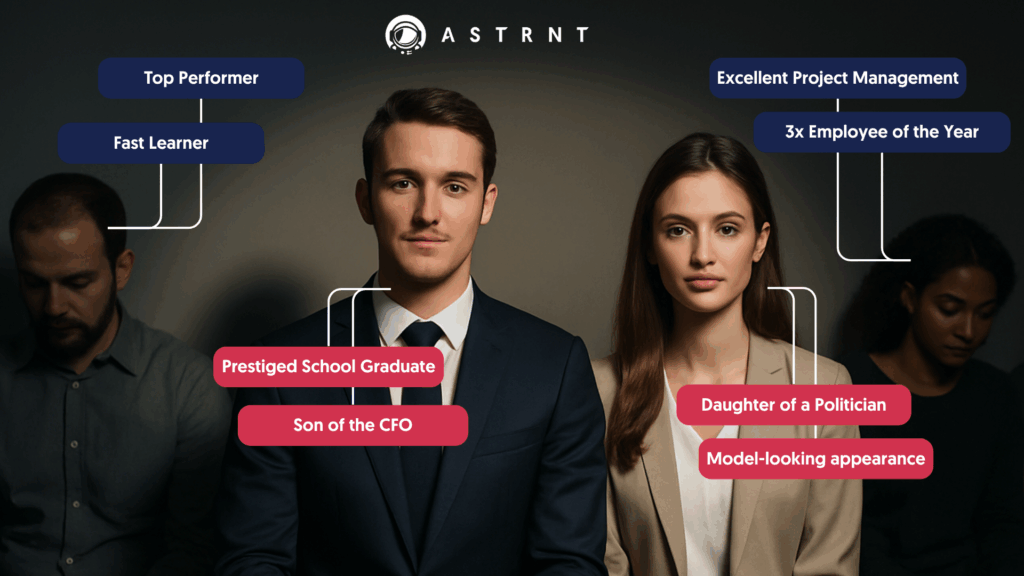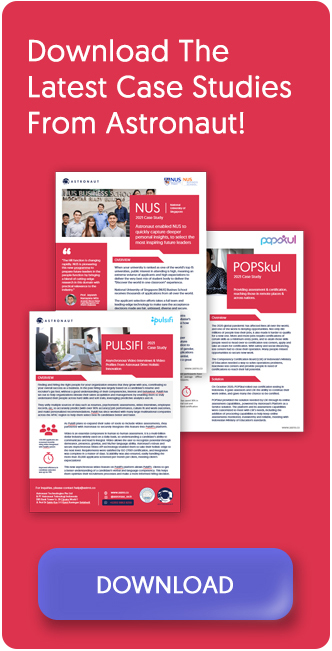
Author: Dira Tjokro | Editor: Intan Khatulistiwa
Did You Know Even the Best Talent Reviewers Aren’t Immune to Bias?
We assume we hire based on merit. But the brain doesn’t process fairness, it processes shortcuts. In under 200 milliseconds, we draw conclusions from names, faces, schools, and even email domains. You don’t have to be biased to be influenced. All it takes is exposure.

Unconscious bias clouds decisions. Anonymous Candidate Review clears the view.
- A last name tied to a public figure, a politician, a celebrity, a C-Level of a well-known brand.
- A face that fits the conventional standard of “attractive.”
- An Ivy League mention.
- Even a suspiciously refined tone in a cover letter.
By the time someone starts reading the actual assessment, their impression is already shaped. The halo effect takes over. And in a hiring game driven by speed, volume, and more eyes on every decision, that bias doesn’t just exist, it amplifies.

What Anonymous Candidate Review Actually Does
Anonymous candidate review, also known as blind hiring, masked screening, or hidden identity review, removes identity signals in the early evaluation stages. Names. Photos. Schools. Backgrounds. Gone.
What’s left?
- Signals of competence
- Behavioral markers
- Performance under pressure
It’s not about hiding. It’s about re-calibrating judgment. And it works, but only if it’s baked into your system.
The Rise of Anonymous Hiring: A Global Trend
From UN agencies to Fortune 500 companies, anonymous candidate review is becoming standard. In 2024, LinkedIn’s Global Talent Trends reported a 3x increase in companies implementing blind screening to reduce bias and increase DEI trust. Germany and the Netherlands have also piloted national blind CV programs. UK Civil Service made name-blind hiring mandatory for all roles in recent years. In the U.S., big names like Google and HSBC are testing anonymous assessments in early rounds to fight the halo effect.
Why? Because the world has realized: true diversity starts with what reviewers see first. And when organizations talk about fairness but don’t adopt blind review, credibility is on the line.
So where does your hiring process stand in this shift?
Forward-thinking teams aren’t just watching this trend, they’re building it into their systems.
That’s why ASTRNT built the Anonymous Candidate Review to align with this exact movement, helping organizations operationalize fairness at scale.
How ASTRNT Is Adapting to This New Approach
While others are still debating policy, ASTRNT has already made Anonymous Candidate Review a built-in part of the hiring process, real, practical, and ready to scale.
You stay in control. Only key decision-makers, like your recruitment leads or hiring managers, can choose to activate anonymous review for any role.
Once active, your assigned reviewers will only see what truly matters, without context that can skew judgment:
- All candidates will be shown without names, photos, or background info.
- Even video thumbnails are hidden and converted to audio-only. With focus on the substance: answers, assessments, and structured data.
- And when needed, you can re-enable visibility after scoring, ensuring identity doesn’t influence outcomes but still enters the conversation at the right time.
You’re not removing insight. You’re re-sequencing it.
So, ready to put your hiring on a true bias-free setting?
or









